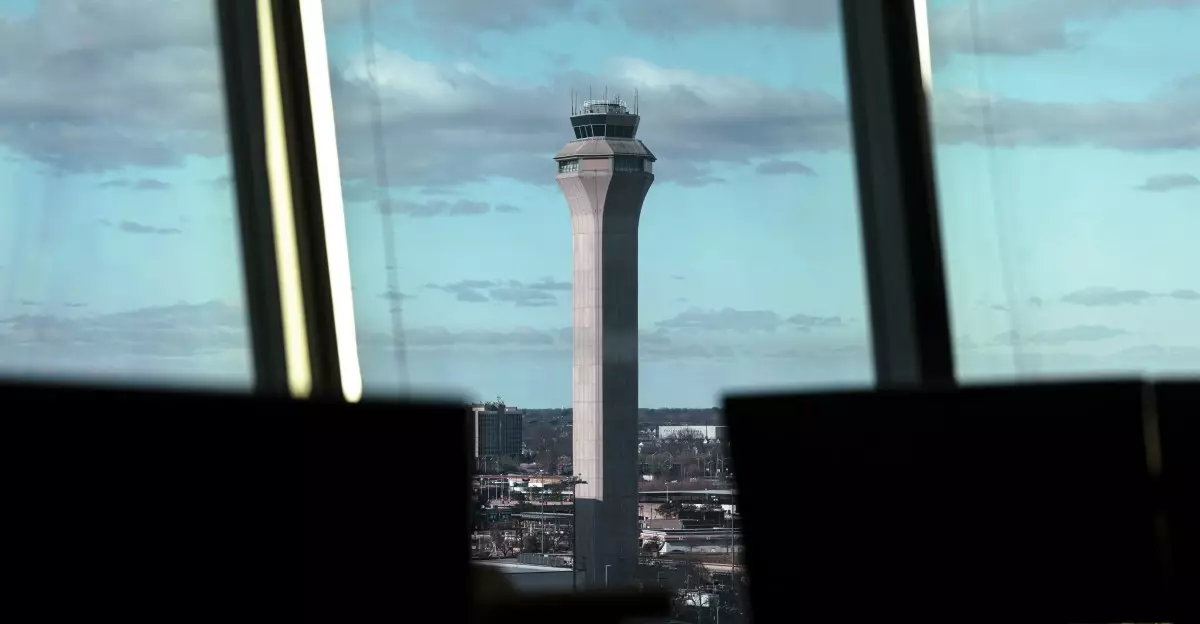The discussions surrounding a potential deal between the Federal Aviation Administration (FAA) and Starlink—SpaceX’s satellite internet service—are raising eyebrows across various sectors. The reported negotiations could have significant ramifications for an existing $2.4 billion contract that Verizon currently holds with the U.S. government to enhance air traffic control communications. According to Rolling Stone, these discussions are primarily verbal, a practice that diverges from standard procedural norms where contracts and negotiations are typically documented. This lack of formal communication has led to speculation that entities involved are keen to minimize a paper trail, which could suggest either a deliberate obfuscation of details or an attempt to avoid accountability.
The Implications of the Transition from Verizon to Starlink
If confirmed, the shift from Verizon to Starlink may disrupt established protocols and potentially compromise the quality of air traffic control communications. Verizon, a longstanding partner of the U.S. government in this domain, has already invested significant resources into enhancing the communication frameworks essential for safe air travel. The prospect of transition to Starlink, which is still relatively new in this context, warrants a critical examination of its readiness to handle such a crucial role. Concerns have been raised about the efficacy of Starlink’s services, given Musk’s comments on the deteriorating conditions of Verizon’s infrastructure.
Advocates for Starlink argue that its satellite-based technology could provide a more modern and resilient alternative, which, in theory, would improve communication capabilities over traditional ground-based systems. However, critics express skepticism about whether Starlink can truly deliver the reliability required in air traffic control, given its history of intermittent service and varying levels of performance.
The Conflict of Interest
The situation intensifies further when considering the implications of Elon Musk’s dual roles in both the Starlink initiative and his influence in government affairs concerning Dogecoin (DOGE). Congress members Rosa DeLauro and James Clyburn have labeled the reported deal as a blatant conflict of interest. Their critiques focus on the idea that prioritizing Musk’s potential financial gain could overshadow public safety and the broader implications for air travel. It’s important to question whether Musk’s status as a billionaire with access to federal discussions may unduly influence governmental decisions.
The emergence of such conflicts of interest raises critical questions about corporate influence over public safety sectors. In essence, when private interests begin to intertwine with governmental service provisions, there lies a genuine risk to operational integrity and safety, necessitating thorough legislative scrutiny.
As the discussions surrounding the potential transition from Verizon to Starlink unfold, it is crucial for stakeholders—including government officials, aviation authorities, and the public—to remain vigilant. Transparency and accountability in these negotiations are essential to ensure that decisions made prioritize safety and efficiency over excessive corporate influence. The implications of the impending decision could resonate deeply, emphasizing the need for frameworks that prioritize public interest in an era increasingly dominated by powerful private entities. As the discussions evolve, the collective scrutiny will be vital in shaping a fair and responsible outcome for air traffic communications in the United States.

